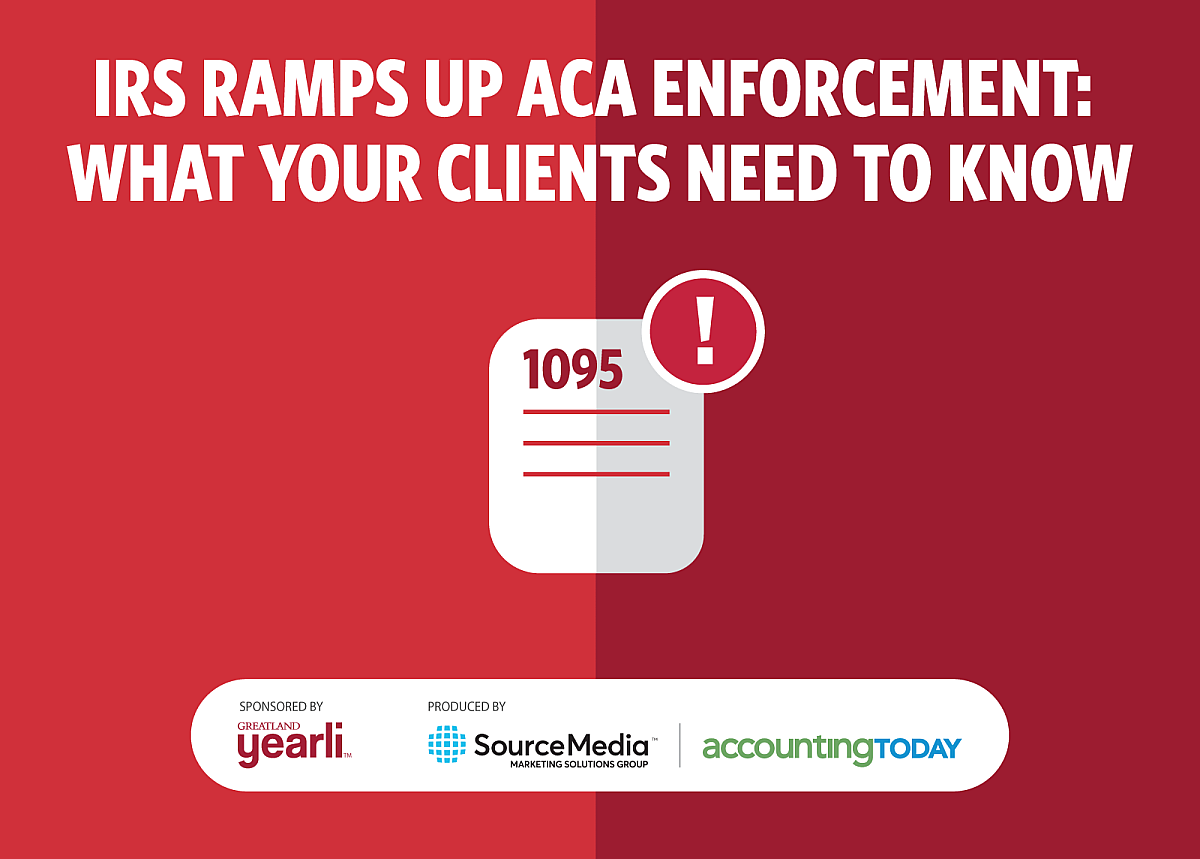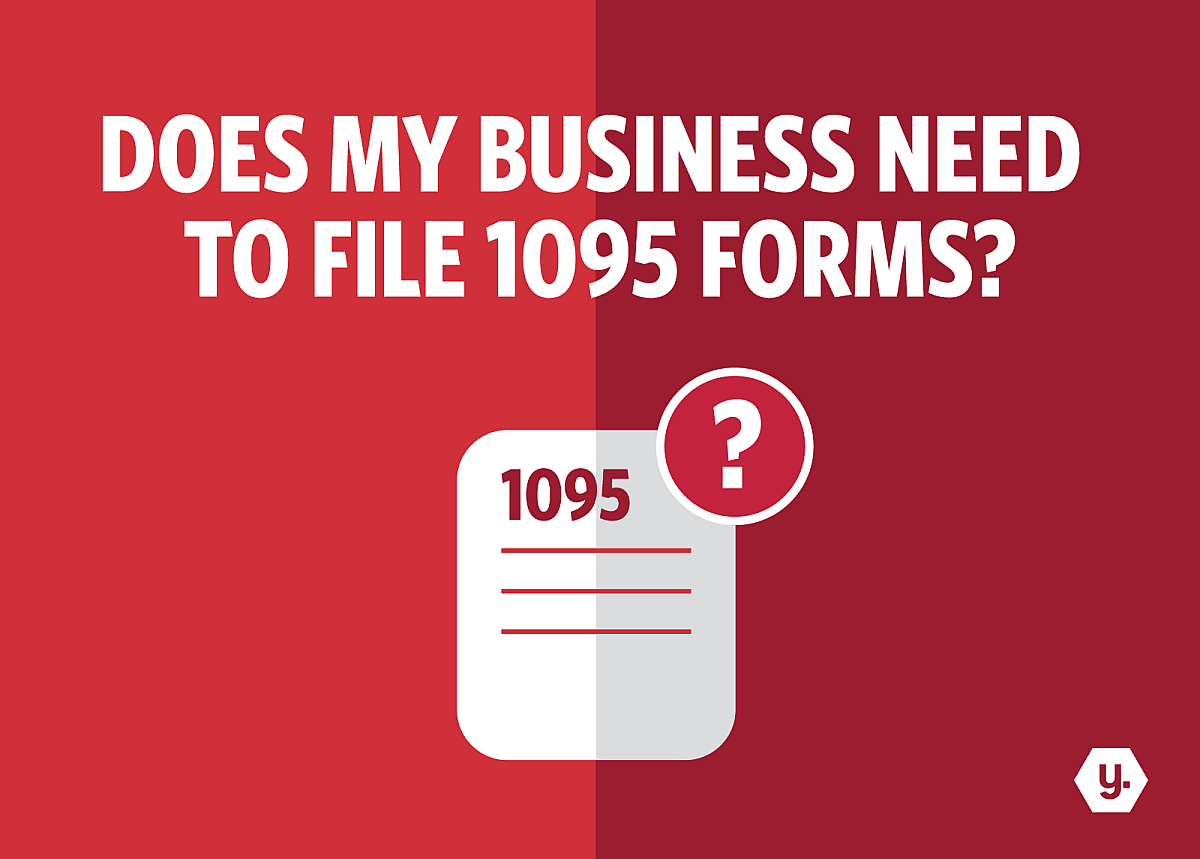
IRS Ramps Up ACA Enforcement: What Your Clients Need to Know
It is no secret that the IRS has been enforcing compliance of the Affordable Care Act and now a growing number of businesses are landing in the IRS’ crosshairs as the agency has shifted enforcement efforts into higher gear. And the momentum shows little signs of slowing.
Helping your business clients navigate the complexities of ACA and ensuring compliance not only strengthens your role as a trusted advisor, but can help them save significant money in penalties. In fact, according to reports, the IRS issued more than $4.5 billion in penalties to employers for the 2015 tax year alone.
Furthermore, research indicates that many businesses are still unclear about some ACA rules. Take, for instance, the findings of a recent ADP survey of mid-sized organizations. According to the survey:
- Time to respond to a penalty notice: 91 percent of respondents could not correctly answer.
- How penalties are activated: 74 percent could not correctly answer
- Obligations if employees waive coverage: 66 percent could not correctly answer
- The effect of repealing the individual mandate on employers: 53 percent could not correctly answer
Uncertainty and confusion no doubt leaves employers vulnerable to IRS’ enforcement activities. Even if an employer hasn’t received a penalty notice from the IRS, it doesn’t guarantee they won’t. Just last year, the IRS started sending out employer shared responsibility penalty letters for 2016, and notices for 2017 ACA fi lings began circulating in the spring of 2019. Expect the IRS to continue this activity for subsequent tax years.
Consider the following and help ensure that your business clients are compliant and aware of the signs that the IRS is stepping up eff orts to enforce the ACA.
Letters
There are two primary ACA letters that the IRS is sending to employers — Letter 5699 and 226J.
Letter 5699 is a precursor to the possible issuance of an ACA penalty. It is a notice sent to employers the IRS believes are Applicable Large Employers (ALEs), but did not fi le and/or furnish the proper forms 1094-C and 1095-Cs.
An ALE is an employer that has at least 50 full-time employees, including full-time equivalent employees, on average during the prior year. It is, therefore, subject to the employer shared responsibility provisions and the employer information reporting provisions.
Should your business client receive Letter 5699, consider taking the following steps:
Refer to the Tax Year on the 5699 letter to know which year to address and check the following:
- Did you file the correct form type for the Tax Year indicated on Letter 5699?
- Did you file an authoritative transmittal?
As part of the letter, IRS provides the filer with five options. Select the proper option and return your response to IRS within 30 days from the date of the letter. The five options are:
- The employer was an ALE for the tax year(s) in question but fi led its Forms with a diff erententity;
- The employer was an ALE for the tax year(s) in question and is including the Forms with its response to the Letter (this option is not available to employers fi ling 250 or more Forms 1095-C);
- The employer was an ALE for the tax year(s) in question and will be fi ling the Forms with the IRS by a specified date (not more than 90 days from the date of the Letter);
- The employer was not an ALE for the tax year(s) in question; or
- Another reason, along with a statement explaining why the employer has not fi led the Forms, and the actions the employer plans to take to correct the error.
A second letter is 226J, which states that the ALE may be liable for an Employer Shared Responsibility Payment (ESRP). According to reports, the IRS confirmed in May 2019 that it had completed essentially all of the ESRP penalty notification letters, or Letters 226J, for tax year 2016. In total, more than 30,000 letters were sent to employers. However, as noted earlier, the IRS has since starting sending 2017 penalty letters, both for non-fi ling and non-compliance.
It is important to note that if an employer receives Letter 226J, and does not identify and change what triggered the original penalty notice, they could receive additional notices for subsequent tax years. As reported by The ACA Times, the most commonly cited errors that could result in receiving Letter 226J include:
- Full-time status of employees is inaccurate;
- Code errors;
- Lack of supporting documentation; and
- Recording error on the 1094-C transttmittal form.
If your business client receives Letter 226J, consider taking the following measures:
- Gather Form(s) 1094-C and 1095-C that were fi led to IRS for the tax year shown on the first page of the letter;
- Check the Employee PTC Listing and ESRP Summary Table included in the letter for any possible errors or discrepancies;
- Complete response Form 14764; and
- If you believe that there is an error in the penalty assessment, check the box on Form 14764 stating “I disagree with part or all of the proposed assessment of the ESRP” and work out a reduced and/or eliminated penalty.
Forms 1094-C/1095-C
Given the fact that the individual mandate was effectively repealed as of Jan. 1, 2019 and the IRS is no longer penalizing people who are uninsured in 2019 (note: states still have the option to do so), the check box indicating full-year health care coverage or an exemption is being removed from the 2019 Form 1040. This does not, however, eliminate the 1094-C and 1095-C filing requirement.
If accountants and their clients do not file Forms 1094-C and 1095-C, the penalty for failure to file still remains.
Key ACA deadlines to consider:
- Employers must provide eligible full-time employee a form 1095-C by Jan. 31, 2020
- The IRS must receive Forms 1094-C and copies of the 1095Cs. The deadline for paper fi ling is Feb. 28, 2020. The e-filing deadline is March 31, 2020.
Increased Penalties
The IRS is offering employers no respite from ACA penalties. In fact, as in past tax years, the penalties for failing to comply with the ACA will increase for the 2019 tax year. Therefore, it is important for accounting firms to educate business clients on the potential impact of noncompliance with ACA provisions and reporting rules to help avoid penalties.
The 2019 ESRP for failure to off er minimum essential coverage to at least 95 percent of its full-time employees (and their dependents) if at least one full-time employee receives a premium tax credit is $2,500 (on an annual basis) for each full-time employee, with the first 30 employees excluded from the calculation.
If an ALE does off er minimum essential coverage to at least 95 percent of its full-time employees (and their dependents) and at least one full-time employee receives a premium tax credit, the employer shared responsibility payment for 2019 is $3,750 (on an annual basis), but only for each full-time employee who receives the premium tax credit.
Also, the maximum penalties for failure to file 1094-C and 1095-C forms to IRS and for failure to furnish 1095-C forms to recipients are adjusted on an annual basis.
Track Client Growth
What happens when an employer with fewer than 50 employees grows into an ALE who must then comply with “Employer Shared Responsibility” provisions?
Determining whether or not an employer is an ALE is based on prior year data. So, if this number is fewer than 50, on average, during the prior year, the employer is not an ALE for the current calendar year. Accounting professionals should, however, provide direction to their business clients on the calculations to be used to track the number of full-time equivalent employees each month under ACA rules.
If it appears that the employer may be close to reaching an average of 50 full-time equivalent employees, it may be advisable to educate the client on the potential cost of the ESRP if the employer chooses not to provide coverage to its full-time employees and their dependents.
Given the various moving components of ACA, it comes as little surprise that some confusion as to what ACA requires still remains. As a trusted advisor, your clients rely on you for your expert guidance. The good news: You’re not alone.
Tools and Resources
To help accounting professionals, and their clients, navigate the complexities of ACA, solution providers like Greatland have taken steps to arm preparers with the necessary tools and resources.
Greatland, for instance, provides a mixture of self-help and personalized tools to help accounting professionals with ACA filing. Some of the self-help tools include step-by-step fi ling videos for each form type, a deadline calculator, ACA news articles and deadline reminders. Greatland has also created a free online widget to help calculate Part II codes on form 1095-C, often considered the most difficult aspect of ACA filing. If filers need further help, Greatland also offers assistance by phone, chat and email with extended hours during peak filing times.
As the IRS shifts its enforcement eff orts into higher gear, take steps to help ensure that your business clients remain compliant. That includes educating clients on the potential impact of noncompliance with ACA provisions and reporting rules, and turning to solution providers, like Greatland, who can provide the tools and resources needed to effectively and efficiently serve clients.
Latest News
-
 November 25, 2025
November 25, 2025New Alternative Furnishing Method for Forms 1095-B and 1095-C Comes with Complexities
The IRS has updated the Affordable Care Act (ACA) reporting process for Forms 1095-B and 1095-C. These changes aim to reduce administrative costs and simplify reporting, but they also create new compliance challenges for employers and health insurance providers.Read More -
 October 8, 2025
October 8, 2025Your Business Guide to 1099 Filing in 2025: Deadlines and Compliance Tips with Yearli
Businesses must prepare for 2025 IRS 1099 filing by understanding key deadlines for Forms 1099-NEC and 1099-MISC and leveraging e-filing tools like Yearli to stay compliant. This guide outlines important dates, recent IRS updates, and practical tips to avoid penalties and streamline the filing process.Read More -
December 30, 2024
Understanding Form 1099-DA: A Comprehensive Guide to Filing for Digital Asset Transactions
As the use of digital assets like cryptocurrencies and non-fungible tokens (NFTs) continues to grow, so does the need for clear tax reporting guidelines. To address this, the IRS has introduced Form 1099-DA, which will be required starting in 2025.Read More
